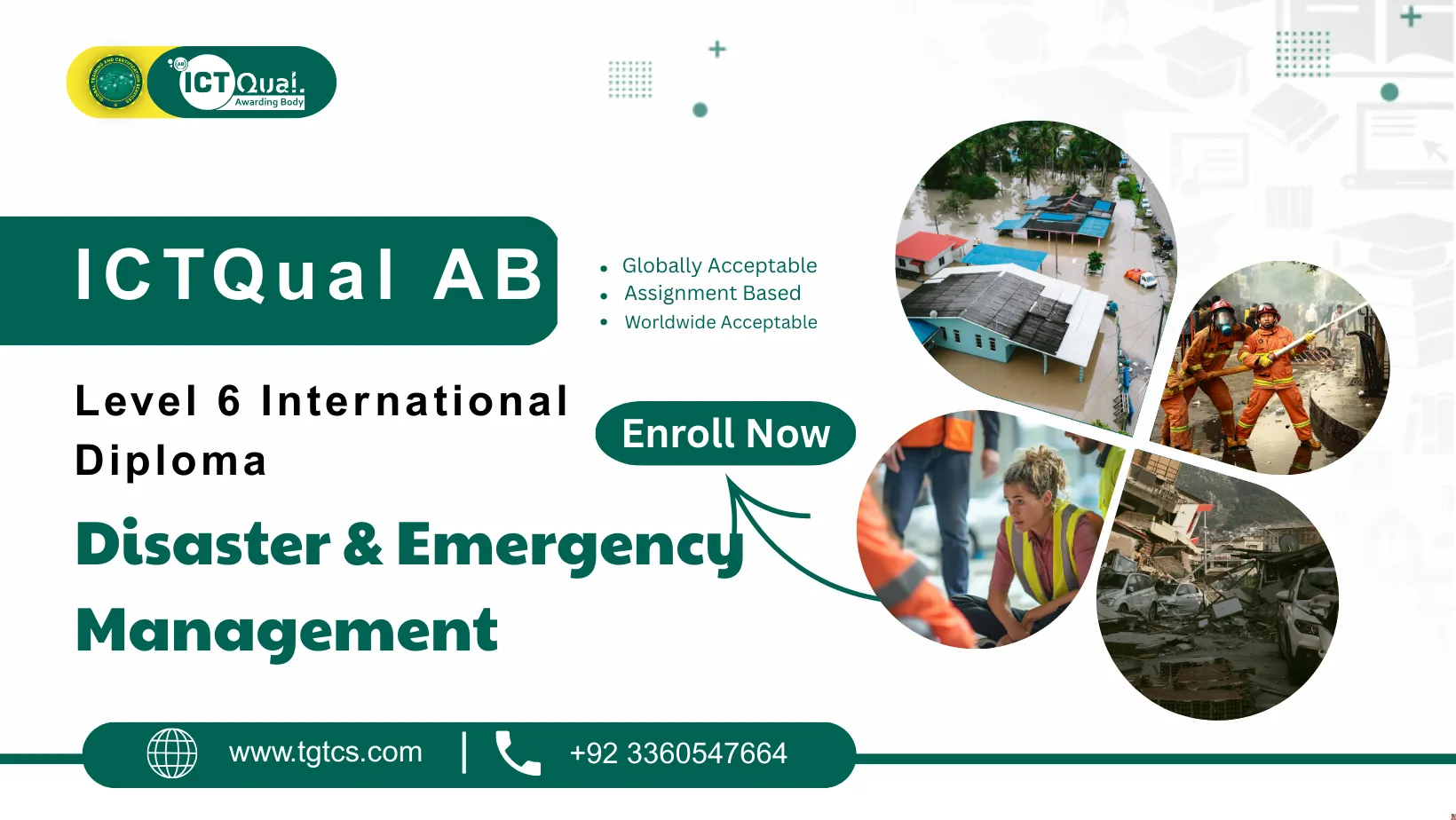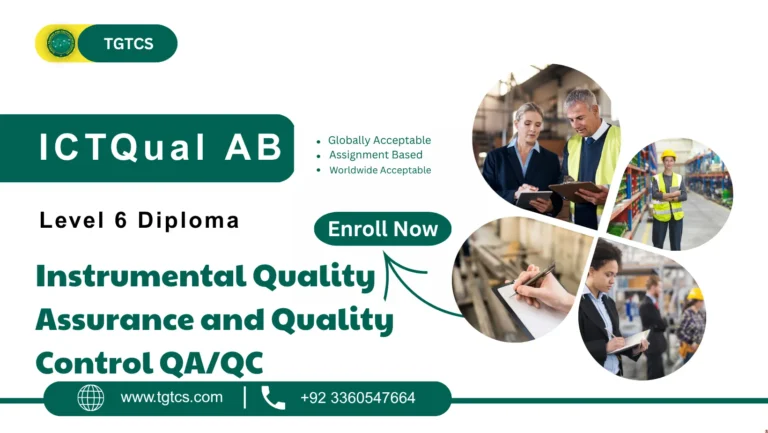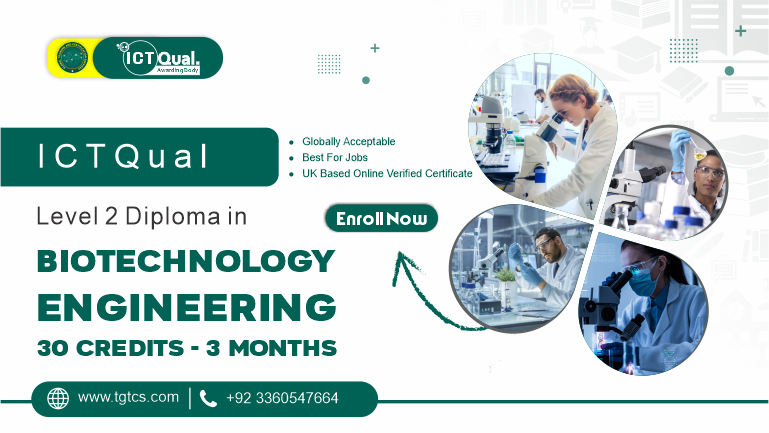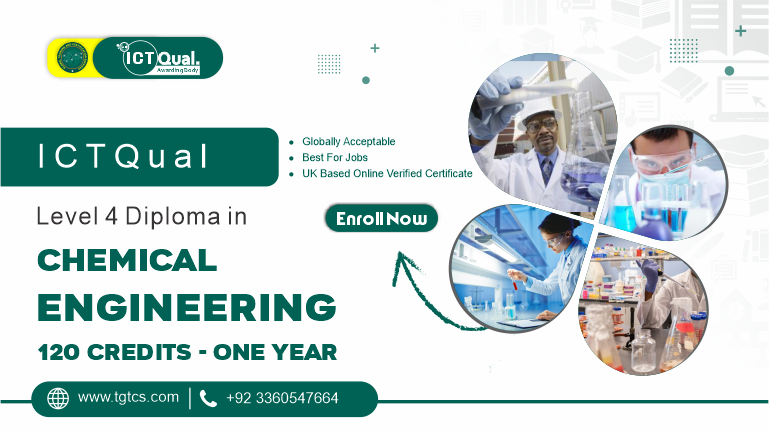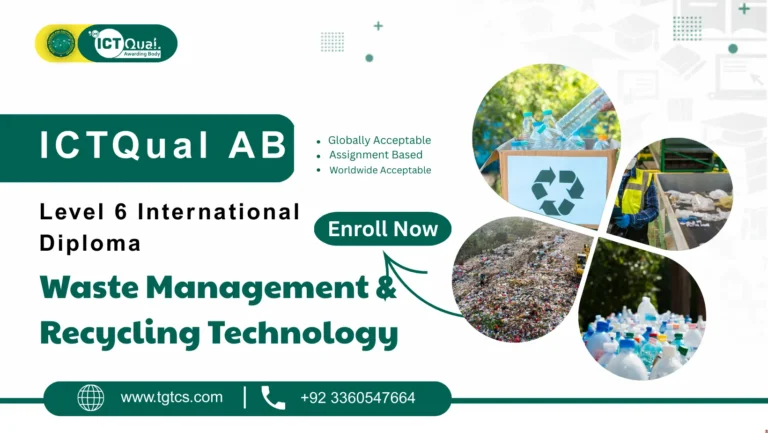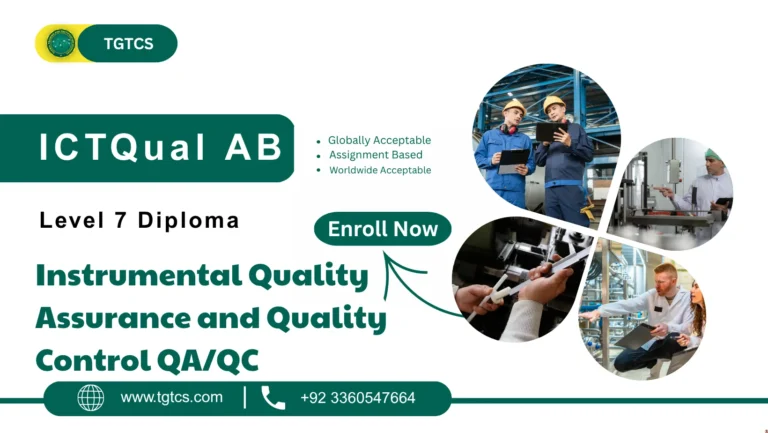ICTQual AB Level 6 International Diploma in Disaster & Emergency Management
In an increasingly unpredictable world, effective disaster and emergency management is critical for safeguarding lives, property, and communities. The ICTQual AB Level 6 International Diploma in Disaster & Emergency Management provides learners with the advanced knowledge, practical skills, and strategic expertise necessary to respond to natural, technological, and human-induced disasters efficiently and effectively.
This comprehensive program is designed for professionals, emergency responders, policymakers, and organizational leaders who aim to excel in disaster preparedness, risk mitigation, and crisis management. Learners will explore the principles of disaster risk management, emergency planning, hazard assessment, and resilience strategies. The course emphasizes both theoretical understanding and practical application, equipping students to design, implement, and evaluate emergency response plans in diverse contexts.
Through a combination of case studies, simulation exercises, and project-based learning, students will gain expertise in crisis management strategies, emergency response coordination, risk assessment, and disaster recovery planning. The program also covers international standards and frameworks in disaster management, helping learners understand regulatory compliance and ethical considerations in emergency scenarios.
Graduates of this program will emerge as competent professionals capable of leading disaster preparedness initiatives, coordinating emergency response teams, and developing policies for community resilience. They will be prepared for careers in disaster risk management, emergency planning, humanitarian response, public safety, and organizational continuity management.
The Global Training and Certification Services is Approved Training Centre of ICTQual AB UK Ltd
Course Level and Credits
Level 6 International Diploma, 360 credits.
Suitable for professionals, emergency responders, organizational leaders, and students seeking advanced knowledge in disaster and emergency management.
Mode of Study
Fully assignment-based; learn at your own pace.
Accessible from anywhere in the world, flexible for working professionals and career changers.
Global Recognition & Attestation
British Council verifiable, MOFA and Embassy attested.
Recognized for career advancement, employment, and professional credibility in disaster management, public safety, and emergency response roles globally.
Scope and Purpose
Comprehensive coverage of disaster risk management, emergency planning, crisis management strategies, and disaster recovery.
Focus on both theoretical understanding and practical application in real-world disaster and emergency scenarios.
Skills and Knowledge Gained
Disaster risk management, emergency response planning, crisis management strategies, hazard assessment, and disaster recovery planning.
Leadership, coordination, and decision-making skills for managing emergencies and ensuring community and organizational resilience.
Career Benefits
Opens opportunities in disaster management agencies, emergency response organizations, humanitarian aid, public safety, and corporate continuity management.
Enhances professional credibility, employability, and global recognition in disaster and emergency management sectors.
Target Audience
Professionals, emergency responders, organizational managers, policy makers, and students aiming for careers in disaster and emergency management, crisis response, and community resilience planning.
Unique Selling Points (USPs)
Flexible self-paced study, fully assignment-based.
Prestigious and globally recognized Level 6 diploma.
Ideal for leadership roles, international career advancement, and professional credibility in disaster and emergency management.
Mandatory Unit
This qualification, the ICTQual AB Level 6 International Diploma in Disaster & Emergency Management, consists of 36 mandatory units.
Year 1 – Foundations of Disaster & Emergency Management
- Introduction to Disaster and Emergency Management
- Types and Causes of Disasters
- Principles of Risk Assessment and Management
- Emergency Planning and Preparedness
- Crisis Communication and Stakeholder Engagement
- Introduction to Humanitarian Response
- Disaster Legislation, Policies, and Governance
- Environmental Impacts of Disasters
- Resource Management in Emergency Situations
- Introduction to Project Management in Disaster Response
- Health and Safety in Disaster Management
- Ethical Considerations in Emergency Operations
Year 2 – Applied Disaster & Emergency Management Practices
- Advanced Risk Assessment and Vulnerability Analysis
- Disaster Mitigation Strategies
- Emergency Operations and Response Coordination
- Incident Command Systems and Leadership
- Humanitarian Logistics and Supply Chain Management
- Community Preparedness and Awareness Programmes
- Disaster Recovery and Rehabilitation Planning
- Crisis Management for Organisations and Institutions
- Use of Technology and Digital Tools in Disaster Management
- Environmental Sustainability in Disaster Operations
- Applied Research Methods in Disaster Management
- Operational Planning and Simulation Exercises
Year 3 – Strategic Leadership in Disaster & Emergency Management
- Strategic Leadership in Disaster Management
- International Disaster Management Frameworks and Standards
- Policy Development and Regulatory Compliance
- Advanced Crisis and Risk Communication
- Disaster Resilience and Business Continuity Planning
- Climate Change and Disaster Risk Reduction
- Emergency Preparedness for Critical Infrastructure
- Governance, Ethics, and Accountability in Disaster Management
- Innovation and Emerging Technologies in Emergency Response
- Strategic Planning and Resource Mobilisation
- Independent Research Project in Disaster & Emergency Management
- Capstone Project: Applied Disaster & Emergency Management
The ICTQual AB Level 6 International Diploma in Disaster & Emergency Management is designed to equip learners with advanced knowledge, practical skills, and strategic leadership capabilities in disaster preparedness, emergency response, and crisis management.
Year 1 – Foundations of Disaster & Emergency Management
Introduction to Disaster and Emergency Management
- Understand fundamental concepts of disaster and emergency management
- Explore types, causes, and impacts of natural and human-induced disasters
- Learn frameworks for disaster preparedness and response
- Apply theoretical knowledge to real-world emergency situations
Types and Causes of Disasters
- Identify natural, technological, and human-induced disasters
- Analyze root causes and contributing factors of various disaster events
- Assess the impact of disasters on communities, organizations, and the environment
- Develop awareness of disaster prevention and mitigation measures
Principles of Risk Assessment and Management
- Conduct basic risk assessments for disasters and emergencies
- Understand hazard identification, vulnerability analysis, and risk evaluation
- Develop strategies to minimize risks and enhance preparedness
- Apply risk management principles in planning and operational contexts
Emergency Planning and Preparedness
- Learn to design effective emergency plans and response strategies
- Develop organizational and community preparedness programs
- Understand roles and responsibilities in emergency scenarios
- Implement monitoring and evaluation measures for emergency readiness
Crisis Communication and Stakeholder Engagement
- Communicate effectively during emergencies and crises
- Engage key stakeholders including government, NGOs, and communities
- Develop public awareness campaigns for disaster preparedness
- Apply communication strategies to enhance coordination and trust
Introduction to Humanitarian Response
- Understand principles of humanitarian aid and emergency assistance
- Explore international frameworks for disaster relief and support
- Learn logistical, operational, and ethical aspects of humanitarian response
- Apply knowledge to plan and coordinate basic humanitarian operations
Disaster Legislation, Policies, and Governance
- Understand national and international disaster laws, policies, and regulations
- Analyze governance structures for emergency management
- Apply legal and policy frameworks in disaster planning
- Evaluate the effectiveness of regulatory compliance in emergency situations
Environmental Impacts of Disasters
- Assess the environmental consequences of natural and human-made disasters
- Understand disaster-induced ecological disruption and resource depletion
- Explore strategies for environmental protection and sustainable recovery
- Apply environmental management principles in disaster response
Resource Management in Emergency Situations
- Plan and allocate resources efficiently during emergencies
- Understand logistics, personnel, and material management in crises
- Optimize the use of limited resources for maximum impact
- Apply strategies for sustainable and effective resource deployment
Introduction to Project Management in Disaster Response
- Learn project management principles in the context of disaster response
- Plan, execute, and monitor emergency projects effectively
- Set objectives, timelines, and performance indicators
- Integrate risk assessment and resource management into project planning
Health and Safety in Disaster Management
- Understand occupational health and safety in emergency operations
- Identify hazards and implement safety measures for personnel
- Apply protocols to minimize health risks during disasters
- Develop contingency plans for safety management
Ethical Considerations in Emergency Operations
- Understand ethical principles in disaster and emergency management
- Apply ethical decision-making during crises and humanitarian interventions
- Promote accountability and fairness in resource distribution
- Ensure respect for human rights in emergency operations
Year 2 – Applied Disaster & Emergency Management Practices
Advanced Risk Assessment and Vulnerability Analysis
- Conduct in-depth risk and vulnerability assessments
- Analyze the resilience of communities and organizations
- Develop mitigation strategies based on risk analysis
- Apply data-driven approaches to enhance disaster preparedness
Disaster Mitigation Strategies
- Explore structural and non-structural mitigation techniques
- Develop long-term strategies to reduce disaster impact
- Implement preventive measures for high-risk areas
- Evaluate effectiveness of mitigation programs and policies
Emergency Operations and Response Coordination
- Coordinate multi-agency emergency response operations
- Implement incident command systems and operational procedures
- Manage resources and personnel effectively during crises
- Ensure seamless collaboration among stakeholders
Incident Command Systems and Leadership
- Understand the principles of incident command and control
- Lead response teams during emergency situations
- Apply decision-making and problem-solving under pressure
- Integrate leadership skills into disaster management planning
Humanitarian Logistics and Supply Chain Management
- Plan and manage humanitarian supply chains efficiently
- Ensure timely delivery of aid and essential resources
- Optimize logistics for disaster relief and emergency operations
- Implement inventory control and distribution strategies
Community Preparedness and Awareness Programmes
- Develop community-based disaster preparedness initiatives
- Conduct awareness campaigns to enhance resilience
- Engage local stakeholders in emergency planning
- Evaluate community readiness and adaptation measures
Disaster Recovery and Rehabilitation Planning
- Plan post-disaster recovery and reconstruction projects
- Implement rehabilitation strategies for affected communities
- Assess social, economic, and environmental recovery needs
- Integrate sustainable practices in recovery operations
Crisis Management for Organisations and Institutions
- Develop organizational crisis management frameworks
- Prepare response plans for institutional emergencies
- Coordinate internal and external communication during crises
- Ensure continuity of operations under adverse conditions
Use of Technology and Digital Tools in Disaster Management
- Apply GIS, modeling software, and monitoring tools in disaster scenarios
- Utilize digital platforms for emergency communication and coordination
- Analyze real-time data for decision-making
- Integrate emerging technologies for enhanced disaster response
Environmental Sustainability in Disaster Operations
- Incorporate environmental protection measures in emergency operations
- Apply sustainable practices in relief and recovery projects
- Assess ecological impact of disaster interventions
- Promote long-term resilience through sustainable strategies
Applied Research Methods in Disaster Management
- Conduct research projects addressing disaster and emergency challenges
- Apply qualitative and quantitative research methods
- Analyze data to inform disaster risk reduction strategies
- Present research findings effectively for policy and operational use
Operational Planning and Simulation Exercises
- Develop operational plans for disaster response and recovery
- Conduct simulation exercises to test emergency preparedness
- Evaluate performance and identify areas for improvement
- Apply lessons learned to enhance real-world response capabilities
Year 3 – Strategic Leadership in Disaster & Emergency Management
Strategic Leadership in Disaster Management
- Develop strategic vision for disaster risk reduction and emergency management
- Lead multi-agency teams and coordinate large-scale responses
- Apply leadership principles to enhance organizational resilience
- Monitor and evaluate long-term disaster management strategies
International Disaster Management Frameworks and Standards
- Understand global disaster management frameworks and standards
- Apply international best practices in planning and operations
- Ensure compliance with humanitarian and regulatory guidelines
- Analyze cross-border disaster coordination and collaboration
Policy Development and Regulatory Compliance
- Develop policies for disaster preparedness and emergency management
- Ensure organizational compliance with legal and regulatory requirements
- Evaluate policy effectiveness and recommend improvements
- Integrate ethical considerations into policy formulation
Advanced Crisis and Risk Communication
- Communicate effectively during complex emergency scenarios
- Develop crisis communication strategies for diverse stakeholders
- Manage public information and media relations during disasters
- Apply psychological and cultural considerations in communication
Disaster Resilience and Business Continuity Planning
- Plan for organizational and community resilience
- Develop business continuity strategies for critical infrastructure
- Integrate risk reduction measures into operations
- Evaluate resilience programs for effectiveness and sustainability
Climate Change and Disaster Risk Reduction
- Assess the impact of climate change on disaster frequency and severity
- Implement climate-adaptive risk reduction strategies
- Integrate climate considerations into emergency planning
- Promote sustainable solutions for long-term resilience
Emergency Preparedness for Critical Infrastructure
- Identify vulnerabilities in critical infrastructure systems
- Develop emergency preparedness and response plans
- Apply risk management to protect essential services
- Coordinate with stakeholders for infrastructure resilience
Governance, Ethics, and Accountability in Disaster Management
- Apply ethical frameworks and governance principles
- Promote transparency, accountability, and stakeholder trust
- Evaluate organizational decision-making during disasters
- Ensure adherence to legal and ethical standards
Innovation and Emerging Technologies in Emergency Response
- Explore innovative technologies for disaster detection and response
- Implement digital tools for coordination and monitoring
- Evaluate emerging solutions for efficiency and effectiveness
- Integrate innovation into operational and strategic planning
Strategic Planning and Resource Mobilisation
- Develop strategic plans for large-scale disaster management
- Allocate resources efficiently for emergency preparedness and response
- Monitor and optimize operational performance
- Ensure sustainability and scalability of disaster programs
Independent Research Project in Disaster & Emergency Management
- Conduct an independent research project addressing a specific disaster challenge
- Apply rigorous research methodologies and data analysis
- Present actionable solutions and evidence-based recommendations
- Demonstrate critical thinking and problem-solving in disaster contexts
Capstone Project: Applied Disaster & Emergency Management
- Implement a comprehensive disaster management project
- Integrate knowledge from all course units to solve real-world problems
- Demonstrate leadership, operational, and strategic planning skills
- Present outcomes to stakeholders, showcasing professional competence
The ICTQual AB Level 6 International Diploma in Disaster & Emergency Management provides learners with the essential knowledge, practical skills, and leadership abilities needed to excel in disaster preparedness, emergency response, and crisis management globally.
Enhanced Career Opportunities
- Gain an internationally recognized Level 6 qualification in disaster and emergency management
- Access leadership roles in emergency response, disaster risk management, and humanitarian operations
Practical Skills Development
- Acquire expertise in disaster risk assessment, emergency planning, and crisis response coordination
- Develop hands-on skills in resource management, operational planning, and simulation exercises
Strategic and Analytical Competence
- Learn to analyze disaster scenarios and implement effective mitigation strategies
- Build decision-making skills for managing large-scale emergency operations and recovery programs
Policy and Regulatory Knowledge
- Understand international frameworks, disaster legislation, and compliance requirements
- Apply policies and standards to enhance organizational preparedness and community resilience
Innovation and Leadership in Disaster Management
- Drive innovative solutions using emerging technologies for disaster detection and response
- Cultivate leadership skills to manage teams, coordinate multi-agency operations, and ensure sustainable outcomes
This course empowers learners to become confident professionals capable of leading disaster preparedness initiatives, coordinating emergency operations, and implementing strategic solutions that protect communities and organizations globally.
The ICTQual AB Level 6 International Diploma in Disaster & Emergency Management is designed for learners who aim to advance their careers in disaster preparedness, emergency response, and crisis management, while developing leadership skills to protect communities and organizations.
Emergency Response Professionals
- Enhance practical skills in disaster response, risk assessment, and operational coordination
- Apply advanced knowledge to lead teams during emergency situations
Career Changers in Disaster Management
- Transition into the disaster and emergency management sector with hands-on expertise
- Gain strategic and operational knowledge to pursue leadership roles in crisis management
Organizational Leaders and Managers
- Improve decision-making and leadership skills for emergency planning and response
- Ensure compliance with disaster management policies and international standards
Humanitarian and Relief Workers
- Develop expertise in humanitarian logistics, disaster relief, and community preparedness
- Coordinate aid programs effectively while adhering to ethical and operational guidelines
Researchers and Academics
- Deepen understanding of disaster risk reduction, crisis management, and resilience strategies
- Conduct applied research projects and contribute to innovative disaster management solutions
This course prepares learners to become confident professionals and leaders capable of implementing effective disaster and emergency management strategies, ensuring safety, resilience, and sustainable recovery for communities and organizations worldwide.
Course Overview
Course Level
Level 6
Course Units
36 Units
Credits
360
Duration
3 years
